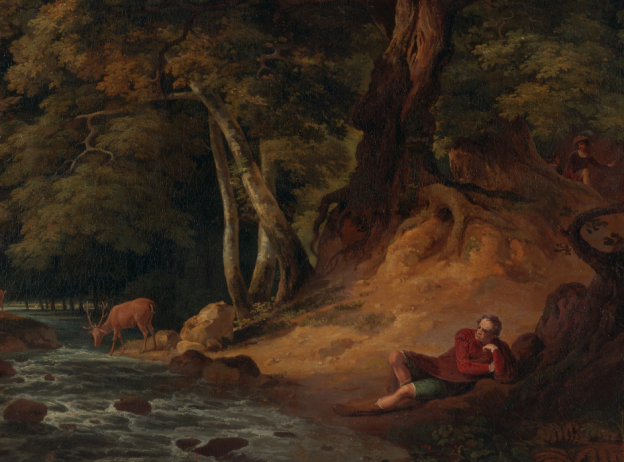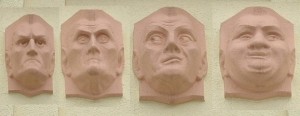Ever hear someone call you “sanguine” to compliment your bubbly personality? Maybe people worry that you become a bit too “melancholic?”
Jaques, one of Duke Senior’s lords In Shakespeare’s “As You Like It,” spends his time as a merry-sad follower. He exudes a presence of depression and resignation while chilling in solitude. When characters talk to him, they quickly realize he’s a pretty dismal guy with little ambition in life.
Repeatedly described as “melancholic,” Jaques stands outside the play and judges other characters’ irrational behavior. This word perfectly describes his bleak attitude on the events of the play, being able to step back and act as an impartial audience. When Rosalind asks him why he’s so grouchy, Jaques explains his motto.
“It is a melancholy of mine own, compounded of many simples, extracted from many objects, and indeed the sundry contemplation of my travels, which, by often rumination, wraps me in a most humorous sadness.” (IV. 15-19).
Jaques’ dark personality harkens back to the idea of Melancholia, one of four ancient temperaments used in proto-medicine days. British playwrights used the Four Temperaments, a popular belief during Elizabethan England, to personify many of their characters. The other three temperaments that made up the rest of the group included Phlegmatic, Sanguine, and Choleric. Each temperament corresponded with a classical humor, as well as a personality type. Before modern medicine, doctors believed that an imbalance of these four distinct bodily fluids were the cause of multiple diseases, with a specific ailment connected to an excess of one of these humors.
Melancholia, repeatedly used to highlight Jaque’s humorous personality in the play, is derived from the greek term “melaina chole.” Melancholy was often paired with black bile, the classical humor commonly associated with depression and despondency. People with too much black bile in their bodies were considered to be melancholic, much like our miserable friend Jaques. What is interesting is that while he is mopey and depressing most of the time, Jaques actually seems to enjoy his moody temperament, cynically believing that he has the right mindset to deal with the volatile aspects of life.
In the complex explanation of humorist theory, Greek philosophers associated Melancholia with earth, one of the four classical elements. Jaques’ decision to retreat back to Duke Senior’s cave after visiting a monastery highlights this connection to earth and nature. Rather than reveling in the excitement of marriage and love, Jaques weirdly chooses to live a somber life in the forest, devoid of human warmth and love.
So Doctor, What’s the Cure to My Moodiness?
Robert Burton, an English scholar of Elizabethan England, wrote an extensive treatment of melancholia in his pivotal work, The Anatomy of Melancholy (1621). He believed that divine music was a “sovereign remedy against despair and melancholy.” Similar to Burton’s idea of praying the sadness away, Jaques resolves to send himself to a religious monastery at the end of AYLI. Perhaps Shakespeare knew that in order to cure one’s sadness, a person needed to visit a church and find love again, even if it’s from an intangible being that’s capable of delivering divine punishment.



